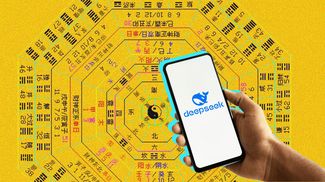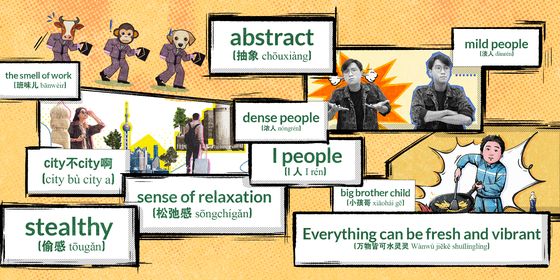After spending all their wages on Singles Day shopping, how do Chinese netizens talk about being low on funds?
After November 11, the rest of the winter is a time of belt-tightening for many Chinese shopaholics who have spent their savings on Singles Day deals. The endless cycle of earning and purchasing, of being a “打工人 (dǎgōngrén, wage laborer)” in the daytime and “尾款人 (wěikuǎnrén, balance payer)” by night, has finally caught up with them after the annual shopping festival, and some feel they must figuratively “chop off their hands (剁手 duòshǒu)” to stop their spending sprees.
At this point, the 打工人 become “丁工人 (dīnggōngrén),” a pun based on the fact that the character 丁 is 打 without the “hand” radical. After their “amputations,” these 丁工人 may also join the ranks of “hidden impoverished youth (隐形贫困青年 yǐnxíng pínkùn qīngnián),” who on the surface appear to live comfortable, prosperous, even luxurious lives, but are actually broke.
They are often seen visiting high-end restaurants, using expensive cosmetic products, or signing up for premium gym memberships. But this is all about keeping up appearances and they are actually deep in debt: “My salary is 7,000 RMB a month, but I have bought lots of expensive cosmetics; my face cream alone is worth 1,600 yuan,” says one post from a Weibo user who claims to be a hidden debter.
These young 丁工人, 隐形贫困青年, or “moonlight clan (月光族 yuèguāngzú),” who squander their salaries faster than they earn it, also call themselves 负翁 (fùwēng, indebted person), a play on 富翁 (fùwēng, wealthy person), as 负 and 富 are homophones. They declare on social media: “I’ve become poor because I want to look wealthier (我是为了看起来富一点才穷下来的 Wǒ shì wèile kàn qǐlái fù yìdiǎn cái qióng xiàlái de).”
They also playfully call themselves “exquisitely poor (精致穷 jīngzhì qióng),” because their tastes remain expensive even in poverty. They might lament that, “chopping hands lasts a second, but making the repayments is like entering a crematorium (剁手一时爽,还款火葬场 Duòshǒu yìshí shuǎng, huánkuǎn huǒzàngchǎng),” referring to the immediate pleasure from making a purchase, then the horror at being slowly crippled by monthly bills.
These broke youths at least have some tricks up their sleeves to save money, or “fleece wool (薅羊毛 hāo yángmáo).” The term, which first appeared in a comedy sketch in CCTV’s Spring Festival Gala in 1999, now describes searching for the best deals and discounts to squeeze every last mao from one’s purchases: “There is nothing that cannot be fleeced (万物皆可薅 Wànwù jiē kě hāo),” serial savers often say. Expert fleecers scour shopping apps every day for every discount and coupon they can find, and are known as members of the “wool party (羊毛党 yángmáodǎng).”
Wool party members also never miss out on an opportunity to “freeload (白嫖 báipiáo).” Literally meaning “to visit a prostitute for free,” the rather vulgar term gained popularity with the rise of celebrity fan groups to describe idol-followers who fawn after stars and enjoy the content they put out, but never spend any money on their concerts or merchandise, nor participate in any fan activities.
The term now refers to all kinds of leeching, in particular when someone gains benefits without paying any money: “I don't want to buy anything, I just want to leech off the online deals (我不想花钱买任何东西,只想通过网络上的活动来白嫖 Wǒ bù xiǎng huāqián mǎi rènhé dōngxi, zhǐ xiǎng tōngguò wǎngluò shàng de huódòng lái báipiáo),” netizens might say.
Netizens frequently swing between two extremes: “extraordinary bill performance (钞常发挥 chāocháng fāhuī),” a playful way to say that they spent way over what they expected during a bout of online shopping, as the character 钞 (banknote) and 超 (extraordinary) are pronounced the same way; and boasting about their thrift by saying they “saved one hundred million RMB (省下一个亿 shěngxià yí gè yì),” a slogan often used by wool party members.
Regardless of how much they’ve saved, and how destitute they are, when the next sale comes around these 丁工人 are nearly always sucked in again, asking one another: “What did you want to buy this time? Let me in on the deal (你这次想买什么,快让我抄一下作业 Nǐ zhècì xiǎng mǎi shénme, kuài ràng wǒ chāo yíxià zuòyè).”












